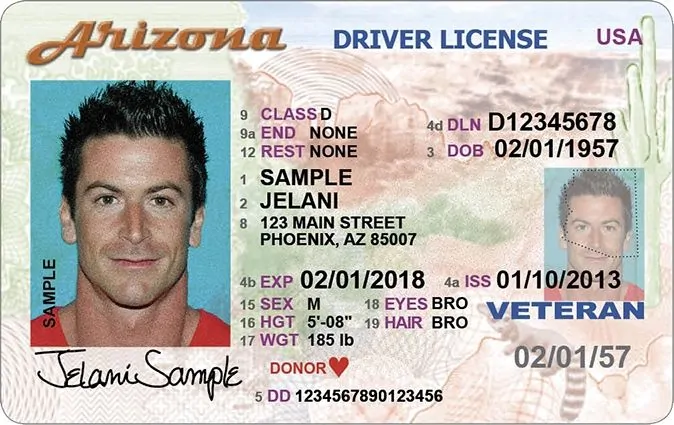Arizona
ID Scanning Laws
Arizona law permits retailers, including hotels, to retain and use information obtained from IDs for specific purposes:
- Verifying a customer’s age
- Establishing a customer’s identity
- Confirming a customer’s license status to operate a vehicle
- Disclosing such information to another business for:
- Verifying a check payment
- Evaluating creditworthiness
- Detecting or reducing the risk of fraud, abuse, identity theft or other crimes
- Collection activities
- Confirming that a customer has met the motor vehicle financial responsibility requirements
- Disclosing such information to:
- The department of transportation
- Insurance licensees
- Notaries
- Financial institutions if permitted by federal law
- Law enforcement agencies
These regulations ensure that hotels can effectively use ID scanning technology while respecting the privacy rights of their guests




Arizona Anti-Trafficking Network
Our Fight Against Human Trafficking



Safe Action Project
Educating the travel, tourism, and hospitality on how to recognize and report human trafficking
The Legal Framework
Arizona ID Scanning Laws and Regulations
Arizona law, specifically the Arizona Revised Statutes (ARS), governs the use of ID scanning technology in the state. The key statute in this context is ARS §4-241, which outlines the legal requirements for businesses that sell or serve alcohol, including hotels. However, the implications of these laws extend beyond just the hospitality industry.
The Legal Framework: ARS §4-241
ARS §4-241 lays out the legal requirements for businesses that sell or serve alcohol. It stipulates that these businesses, including hotels, must verify the age of their customers by checking a government-issued identification card. The law permits the use of electronic devices to scan these IDs for age verification purposes.
Implications for Hotels
For hotels, compliance with ARS §4-241 is crucial. Failure to verify a customer’s age can result in severe penalties, including fines and the suspension or revocation of the hotel’s liquor license. However, hotels must also be mindful of the privacy concerns associated with ID scanning.
Privacy Concerns and Legal Rights
While ID scanning can help hotels comply with the law, it also raises significant privacy concerns. Hotels must ensure that they handle the personal information obtained through ID scanning in a manner that respects the privacy rights of their guests and complies with applicable privacy laws.
Understanding ARS §4-241 in Detail
To fully understand the implications of Arizona’s ID scanning laws, it’s important to delve into the details of ARS §4-241.
Age Verification Requirements
Under ARS §4-241, hotels that sell or serve alcohol must verify the age of their guests. This verification must be done by checking a government-issued identification card, such as a driver’s license or passport.
Use of Electronic Devices
ARS §4-241 permits hotels to use electronic devices to scan IDs for age verification purposes. However, the law also imposes certain restrictions on the use of these devices.
Restrictions on ID Scanning
While hotels are allowed to use electronic devices to scan IDs, they are not allowed to retain any personal information obtained through the scanning process. This restriction is designed to protect the privacy of guests.
The Role of ID Scanning Technology in Hotels
ID scanning technology plays a crucial role in helping hotels comply with Arizona’s ID scanning laws. However, the use of this technology must be balanced with respect for guest privacy.
Benefits of ID Scanning Technology
ID scanning technology offers several benefits. It can help hotels quickly and accurately verify a guest’s age, reducing the risk of human error. It can also help hotels maintain a record of age verification efforts, which can be useful in the event of a legal dispute.
Privacy-Respecting ID Scanning Practices
While ID scanning technology offers many benefits, hotels must also be mindful of the need to respect guest privacy. This means using ID scanning technology in a way that complies with the restrictions imposed by ARS §4-241 and other applicable privacy laws.
Navigating the Legal Landscape: Tips for Hotels
Navigating the legal landscape of ID scanning in Arizona can be challenging. However, with the right approach, hotels can ensure compliance with the law while also respecting guest privacy.
Understanding the Law
The first step for hotels is to gain a thorough understanding of ARS §4-241 and other applicable laws. This may involve consulting with a legal professional.
Implementing Privacy-Respecting Practices
Hotels should implement practices that respect guest privacy. This includes using ID scanning technology in a way that complies with the restrictions imposed by law.
Training Staff
Hotels should also ensure that their staff are properly trained on the legal requirements and privacy concerns associated with ID scanning.
Conclusion
Understanding Arizona’s ID scanning laws and regulations is crucial for hotels. By gaining a thorough understanding of these laws, implementing privacy-respecting practices, and training their staff appropriately, hotels can ensure compliance with the law while also respecting the privacy rights of their guests.
Please note that this information is intended to provide a general overview and does not constitute legal advice. Always consult with a legal professional for advice specific to your situation.
Arizona State Legislature
ID Scanning Resources
Knowledge Base
Frequently Asked Questions
The main law governing ID scanning in Arizona hotels is ARS §4-241. This law outlines the legal requirements for businesses that sell or serve alcohol, including the requirement to verify the age of customers by checking a government-issued identification card.
Yes, hotels in Arizona are permitted to use electronic devices to scan IDs for age verification purposes. However, they must comply with certain restrictions, including a prohibition on retaining any personal information obtained through the scanning process.
Non-compliance with Arizona's ID scanning laws can result in severe penalties, including fines and the suspension or revocation of the hotel's liquor license.
Hotels can ensure compliance with Arizona's ID scanning laws by gaining a thorough understanding of these laws, implementing privacy-respecting practices, and training their staff on the legal requirements and privacy concerns associated with ID scanning.
The main privacy concern associated with ID scanning in hotels is the potential for misuse of the personal information obtained through the scanning process. Hotels must handle this information in a manner that respects the privacy rights of their guests and complies with applicable privacy laws.
Hotels can balance the use of ID scanning technology with respect for guest privacy by using this technology in a way that complies with the restrictions imposed by law, implementing privacy-respecting practices, and training their staff on the privacy concerns associated with ID scanning.
